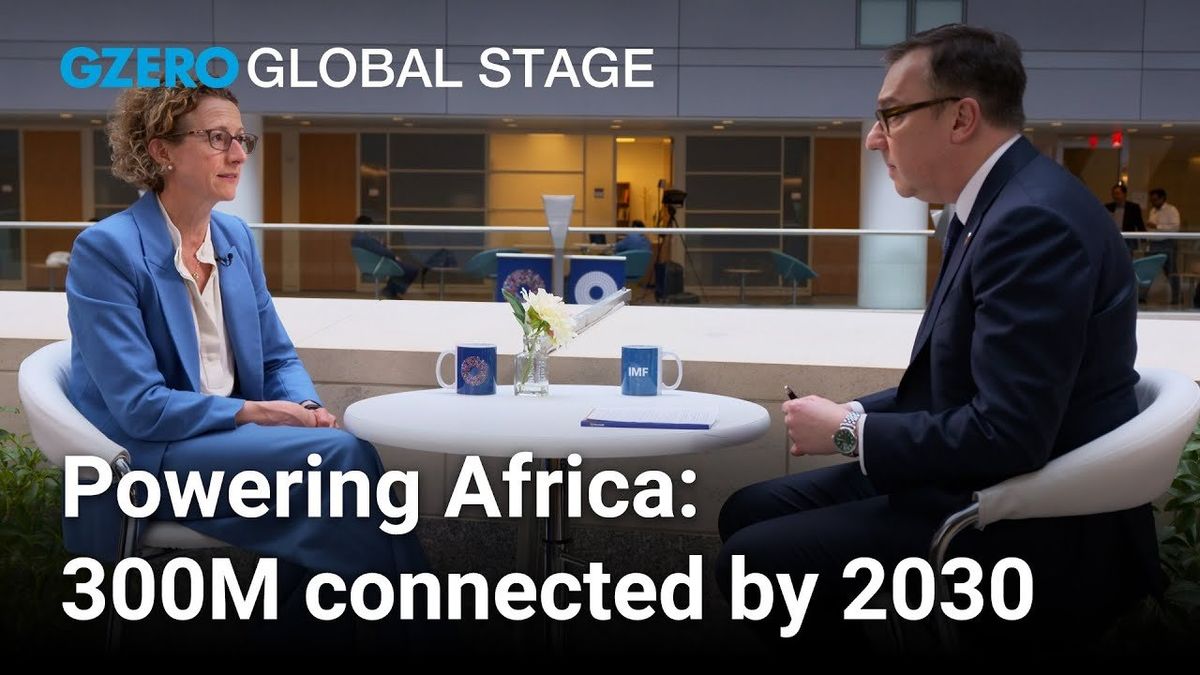Why Africa's power partnership with the World Bank should attract investors
There’s a word frequently used at global convenings like the World Bank Group’s Spring Meetings held this week in Washington, D.C.—multistakeholder. It refers to an approach to problem solving that involves input from a wide range of players—governments, civil society, private sector corporations and investors.
It will take a multistakeholder approach to bring an ambitious new project announced Wednesday to fruition, an initiative to provide electricity to 300 million people in Africa by 2030.
Of the world’s nearly 800 million people living without power, an estimated 570 million are in Sub-Saharan Africa, according to the World Bank. The organization is partnering with the African Development Bank and its own International Development Association to provide up to $30 billion in funding, but is also banking on private sector investment to help make this plan a reality.
At the meetings this week, GZERO’s Tony Maciulis spoke to Lucy Heintz, Head of Energy Infrastructure at Actis Energy Fund, a global investment company focused on sustainability. Heintz expressed optimism in the announcement and explained the reasons why it could be attractive to investors.
“This is a great ambition and it's a huge plan,” Heintz said. “If it's met on the other side by a real intent to do business by government, wherever those governments may be, in those countries where energy access is still lacking, then I think you can start to see the pieces fall into place.”
Heintz explained there are already tools in place that mitigate risk for cross-border private investors, such as the Multilateral Investment Guarantee Agency (MIGA), a World Bank organization that provides insurance for noncommercial political and economic risk.
Success stories already exist globally, Heintz explained, with India being a prime example.
“India has put in place the right legislative frameworks, the right regulation,” she said. “It's also invested in the enabling environment. So, there's a very successful transmission grid investment program, which is led by the government, but then brings in private sector once those projects are de-risked.”
As for concerns about carbon emissions and environmental risk from expanding electricity generation, Heintz says there is a greater danger in not bringing more people to power.
“Reliable electricity supply is fundamental if you want to have any ability to mitigate the risks of climate change, whether it's refrigeration, cooling, the ability to earn a livelihood, it's fundamental,” she said. “I think that's the most important thing to have in mind.”

















